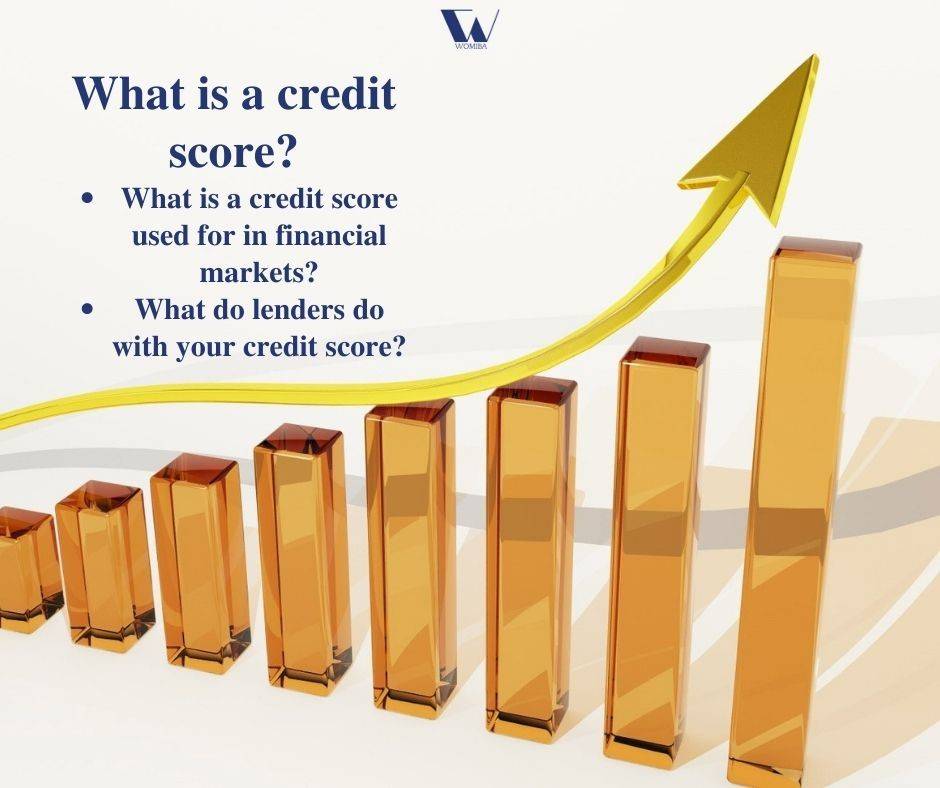
A credit score is a numerical number that evaluates a person’s strength of creditworthiness. A credit score is also known as a credit rating. And it is usually based on a person’s credit history data collected by credit scoring agencies like Experian, Credit Karma, Equifax, Wiserfunding, Fico, CreditSafe, Fitch Group and S&P Global Ratings., etc. Credit score value can technically provide information; which as whether you’re worthy of credit and can pay it back on the agreed time. There are many different scores and scoring models used by credit scoring agencies. Generally, a credit score can be poor, good or strong. The higher or stronger your credit score will make it easy for you to get favourable credit with reasonable terms and conditions.
- What is a credit score used for in financial markets?
In financial markets, at the fundamental level, financial marketers (Advisors) will track your credit history and assess whether you pay your bills on time, County court judgements (CCJ), money laundering or fraud investigation. Financial marketers’ decisions will be based on credit scoring agencies’ information. If you need a personal loan for home improvements, you might not get a loan for your home improvement with a poor credit score. In the united kingdom, the frequent one I have seen is that most people with poor credit scores cannot get phone and broadband contracts.
2. What do lenders do with your credit score?
In practice, lenders approve loans based on credit scores. Since credit score indicates creditworthiness and capacity to repay loans in agreed terms and conditions, it will be difficult to access mortgage loans, for example. Mortgage loans are usually “fat” chunks of money, and anyone accessing it must prove they are a responsible borrower. If you have a poor credit score, lenders will not lend you money.
Secondly, getting a good deal on loan depends on your credit score, and it is far better for your credit score to be strong enough to help you in getting lower interest rates on loans as compared to someone with a poor credit score.
WHAT CAN MAKE A POOR CREDIT SCORE?
Poor credit scores reveal three things to lenders.
- Bad financial habits
- Hardship
- Lack of financial literacy
Since credit is money borrowed with agreed terms and conditions and to be paid back with interest. It is good you pay back what you borrowed with the agreed interests at the due dates. Don’t miss payments, and don’t borrow what you cannot afford to repay. If you have a phone, utility or instalment payment for household products, always plan ahead and pay them on time. Avoid missing bill payments on those things because lenders might view you as being a higher credit risk. This is because the probability of you not paying back what you owe is very high. Lenders might conclude that you will default if given additional credit.
Suppose you lose your jobs or start experiencing reduced income, hardship orchestrated by loss of earning power. In that case, speaking to the people you owe is always better to see how you can get help managing your credit and personal life issues. Get help as soon as possible because there is always help around. If you live in the United Kingdom, speak to the citizen advice bureau financial services, which are usually free.
WHAT CAN MAKE A GOOD OR STRONG CREDIT SCORE?
A good or strong credit score reveals one essential thing to lenders: that you’re financial smart.
Being financial smart is everything.
It means you pay your bills on time, make good use of loans you are given and pay them back whenever they are due. Creditworthiness is everything, as it determines the rest of how your present and future financial life would turn out.
That is why credit scores will exist.
Hope this helps in building your credit score.
I hope this will help you to start paying attention to your finances. You can send me a mail if you have any queries.
To learn more about personal finance, subscribe to our newsletter.



